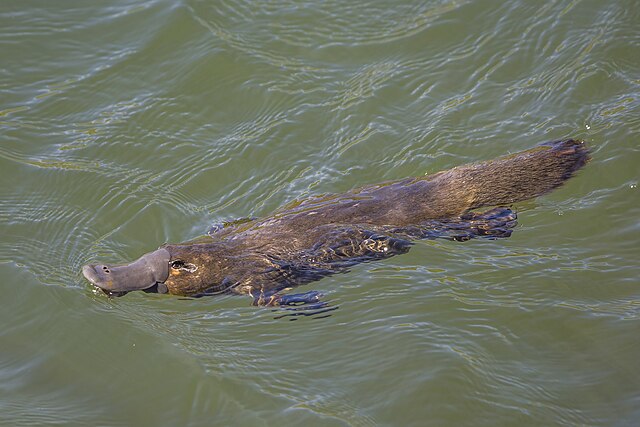Echidnas, sometimes known as spiny anteaters, are quill-covered monotremes belonging to the family Tachyglossidae, living in Australia and New Guinea. The four extant species of echidnas and the platypus are the only living mammals that lay eggs and the only surviving members of the order Monotremata. The diet of some species consists of ants and termites, but they are not closely related to the American true anteaters or to hedgehogs. Their young are called puggles.
Echidna
Spines of the echidna
Short-beaked echidna skeleton
The Western long-beaked echidna, which is endemic to New Guinea
Monotremes are mammals of the order Monotremata. They are the only known group of living mammals that lay eggs, rather than bearing live young. The extant monotreme species are the platypus and the four species of echidnas. Monotremes are typified by structural differences in their brains, jaws, digestive tract, reproductive tract, and other body parts, compared to the more common mammalian types. Although they are different from almost all mammals in that they lay eggs, like all mammals, the female monotremes nurse their young with milk.
Monotreme
Platypus
Short-beaked echidna
A model of the extinct platypod Steropodon at the Australian Museum.








